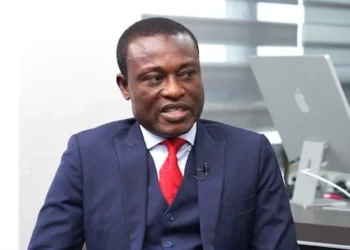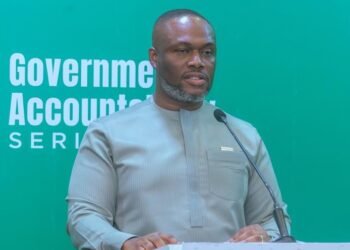In recent times, several prominent members of civil society and academia have raised alarms about the troubling trend of politically exposed individuals leveraging public funds to acquire state assets under dubious terms.
The practice, which undermines public trust and erodes institutional integrity, has drawn widespread criticism for its lack of transparency and accountability.
Mrs. Clara Kowlaga Kasser-Tee, a renowned law lecturer at the University of Ghana Law School and Vice Board Chair at the Ghana Centre for Democratic Development (CDD-Ghana), in a compelling statement, criticized the apparent misuse of public funds to transfer state assets into private hands.
Mrs. Kasser-Tee’s remarks highlighted the paradox of public-private partnerships (PPPs) often touted as a solution to inefficiencies in public asset management.
She questioned the logic of this approach, asking, “Since the private entity is so efficient at managing assets, why did it not manage to acquire and manage similar assets on its own?”
The renowned legal practitioner and the founder and current Head of Kasser Law Firm further pointed out in her critique that if private entities are indeed better managers, their failure to independently acquire and manage similar assets calls into question the validity of transferring public assets to them.
Her critique extended to the competence of public entities tasked with managing these assets. Mrs. Kasser-Tee contended that if a public entity is unable to manage assets it has acquired, it is a clear indication of managerial incompetence.
“Why do they not resign on grounds of incompetence, or simply give way to new managers who can manage the assets?” she questioned, underscoring the critical need for accountability at the highest levels of management within public entities.
Accountability and Transparency: The Way Forward
Moreover, the Ghana Centre for Democratic Development Vice Board Chair, Mrs. Clara Kowlaga Kasser-Tee explained that the use of public funds to facilitate the private acquisition of state assets is not just a matter of efficiency, but is a fundamental issue of governance and accountability.
She emphasized that non-public entities are free to manage their private assets as they see fit, but the same cannot be said for public entities.
Mrs. Kasser-Tee strongly posited that the responsibility to manage public assets prudently is a core function of state governance, and failure to do so should result in consequences for those in charge.
“Sometimes, do not be bamboozled by jargon. Sometimes, if it doesn’t make sense, it is because it doesn’t make sense,” Mrs. Kasser-Tee stated, stressing the need for the public to remain vigilant against obfuscation and to demand clarity and accountability from public officials.
The criticisms from civil society and academic leaders like Mrs. Clara Kowlaga Kasser-Tee highlight a pressing issue in Ghana’s public sector.
The perceived misuse of public funds to benefit private interests under questionable terms is a practice that must be addressed.
Mrs. Kasser-Tee’s remarks resonate with the broader call for a reevaluation of how public assets are managed in Ghana.
There is an urgent need for greater transparency and accountability in the use of public funds. The management of state assets should be held to the highest standards, and those who fail to meet these standards should be held accountable.
As Ghana continues to navigate the complexities of governance and economic development, it is very important that the principles of transparency and accountability remain at the forefront.
Mrs. Kasser-Tee’s critique serves as a clarion call for reform, urging both public officials and the citizenry to demand better management of public resources.
By holding managers of state assets accountable for their actions and inactions, Ghana can work towards a more transparent, efficient, and equitable system of governance.























